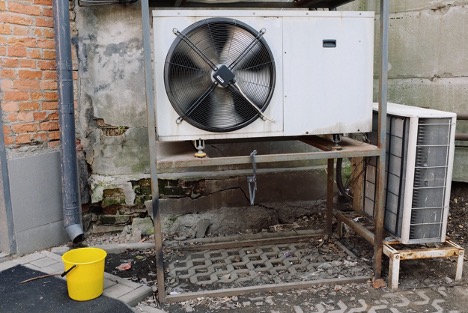The Freon Ban: What Homeowners Need to Know
The usage of air conditioners at home and offices is currently the norm. Everyone understands the desire to keep air temperature standard and be comfortable indoors during the hot season. Air conditioners can also improve air quality and manage the heat produced by appliances. However, you may not know that older AC units can not function without Freon.
What is Freon?
Freon is the brand name for the chemical R-22. This chemical was the primary refrigerant for older air conditioning systems until they were gradually replaced, starting in 2010, due to their harmful effects on the ozone layer.
Freon exists as a gas at room temperature and a liquid when cooled or compressed. It’s colorless, odorless, and non-flammable.
How Does Freon Work With the AC Unit?
You may wonder what the role is that this gas plays in the functioning of your AC unit. The Freon gas passes to the compressor of the AC unit. The compressor is mostly located outside on AC split systems and inside wall mounted residential units. After that, it’s added to the closed-loop system, which allows for its recycling.
The AC specialists recommend checking the AC coolant system annually to ensure it functions properly. A system with a coolant level at about 10% will cost the owner on utility bills. The Freon system should not leak when using it. If there are any leaks, Freon will sink to the ground because it is four times heavier than air.
Here Is How Freon Makes the Air Conditioner Function
We all know that air conditioners work by removing heat from the warm air in buildings. It replaces it with cold air until the thermostat hits the recommended temperature. Here is a detailed overview of how Freon makes that possible.
First, the system compressor makes the gas hot. After that, the hot air passes through a series of coils. That makes the gas undergo condensation and also dissipates the heat.
It’s then passed through an expansion valve. The valve allows it to evaporate and become cold. The cold gas then goes through a series of coils that enable it to absorb heat from the surrounding air.
What Homeowners Need to Know About the Freon Ban
Homeowners who have been following the HVAC industry’s latest developments know that the Environmental Protection Agency has declared Freon as a hazardous substance to the ozone layer. As a result, the agency has banned the manufacturing of Freon. The ban has left many in disbelief, especially those that have not been following the developments.
Despite the ban, the substance remains in use legally. However, homeowners must know that the price of Freon is rapidly rising as supply dwindles. Assessing the cost of Freon versus the age of your HVAC unit may be in order. Beyond the financial costs, homeowners should also consider the cost to the environment.
If you purchased your AC unit after 2010, you most likely don’t have to worry. Units produced after 2010 generally run on a much less harmful refrigerant known as Puron (R-410A).
There are already plans to move beyond this refrigerant for even more environmentally friendly options in the new year. A ten-year phaseout of Puron may begin as soon as 2024.
What Should Freon Users Do?
After the ban, many are wondering what to do. Homeowners can opt for air conditioning repair services. An HVAC technician will help in making the current system run on another refrigerant. Alternatively, they can install a new AC unit that is using the latest technology.
Lastly, homeowners should know that the ban on Freon is not the end of the world. In fact, it may help to stave off the end of the world. The Freon ban can help to rebuild the ozone layer. In turn, this could keep the planet cooler resulting in less need for your AC unit altogether.

